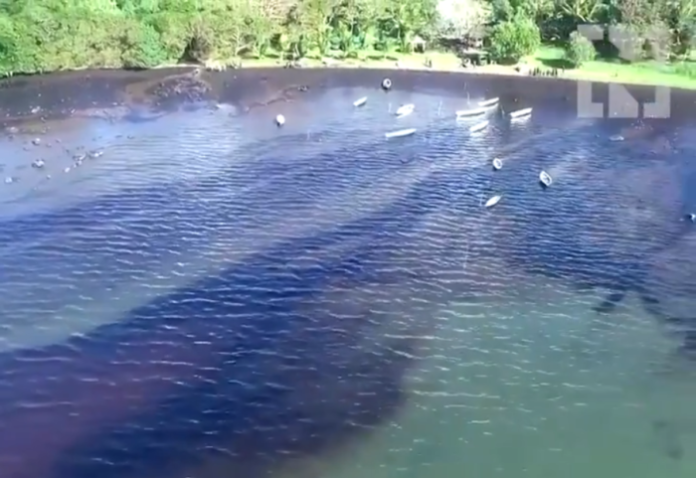
Two weeks into Mauritius’ declaration of the state of environmental emergency, the situation is still dreadful. At least 1,000 tons of fuel were spilt into the Indian Ocean following a massive leak from the Japanese ship MV Wakashio which run aground on July 25th.
Last Saturday, the bulk carrier broke up in half, with the risk of new oil spill from the 4,000 tons it was carrying, and of further environmental devastation for the islands’ world-renowned coral reefs and lagoons. Drone footage showed the extent of the catastrophe.
The captain Sunil Kumar Nandeshwar was arrested last Tuesday on charges of endangering safe navigation, after members of the crew reportedly told police that he was celebrating a birthday party onboard at the time of the collision.
Following the leak, foreign countries including France and India offered their support to Mauritius and social media immediately started fundraising.
A general clean-up effort kicked off with thousands of resident volunteers building improvised floating barriers and stuffing them with hair, sugar cane straws and plastic bottle in an attempt to stop the spread of the oil.
Local sustainable tourism agency Mauritius Conscious declared that now expert teams are on the ground with special machinery and equipment to clean up the oil and remove old artisanal booms.
“The population has done an incredible and admirable job to save our lagoon. We are all now requested to step away from the polluted coastal areas to allow the experts to work in more effective ways for the short and long term,” the agency wrote on Facebook.
Mauritius islands, off Africa’s eastern coast, are known for its white beaches, crystal clear waters, and mangrove forests that ensure rich biodiversity in the area.
Tourism is a key for its economy, last year alone it contributed to about $1.6 billion. However, the coronavirus pandemic has already put a strain on the country by lowering tourists flows and now the oil spill might further damage the economy.
Romina Tello, the founder of Mauritius Conscious, told Reuters that it will cause serious consequences on tourism. “Now, it is impossible for me to recommend for people to travel to the southeast coast due to the smell and they can’t swim because of the spill,” she said.
The consequences will also be terrible for the entire ecosystem in the area. Oil coats everything it touches damaging the flora and making the habitat unsuitable for wildlife.
It kills fish eggs and larvae exposed to it, it destroys the insulating ability of mammals which could then die of hypothermia and it limits creatures’ mobility as in the case of birds. When inhaled or ingested by animals, oil affects their immune function and reproduction, as far as poisoning them.
As they sink into the marine environment, oil spills continue to cause damages for decades, even after massive clean-ups. A study by the National Oceanic and Atmospheric Administration found out that, in 2007, 26,000 gallons of oil were still trapped in the Alaskan shoreline after a spill happened in 1989.
Nagashiki Shipping, the bulk carrier owner, said that they are “deeply conscious of [their] responsibility as a party directly involved in the case.” However, despite the public apologies, petitions still ask for the company that operated the MV Wakashio to be held responsible.
Scenarios like these, together with the sudden plunge in demand for oil caused by the pandemic, are warning signs for big oil companies that might start to think about changing the composition of their businesses. Environmental disasters like these are no longer acceptable.



































